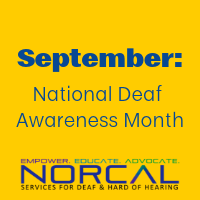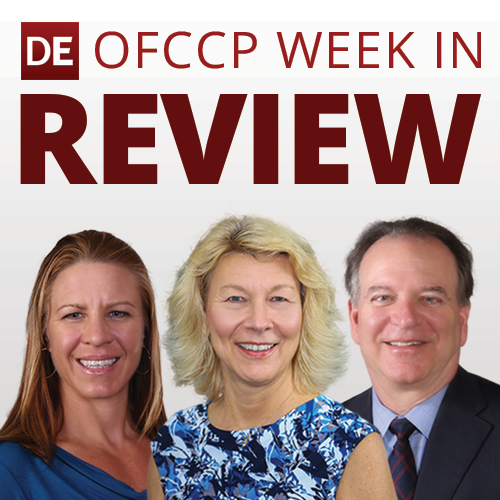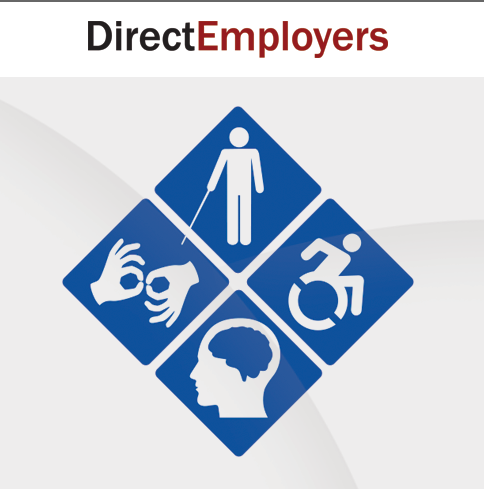


Myth: Individuals with Disabilities Do Not Have the Right Skills for Jobs
The following post was authored by partner American Dream Employment Network (ADEN). In today’s labor market, employers from all industry sectors are competing to recruit talent, which creates a favorable time for job seekers, including job seekers with a disability....
OFCCP Week In Review: March 12, 2018
- Program announced to expedite employee payment errors
- Transitioning transgender protected
- Latest “Employment Situation” numbers released by BLS
- Reminder: March is Women’s History Month

OFCCP Week in Review: September 11, 2017
- Congress resumed work after its August Break
- DHS announced rescission of DACA Program resulting in 720,000 “Dreamer” work authorizations to expire and not be renewed
- Eric Dreiband’s nomination hearing went off without fireworks
- Senate Appropriations Committee now weights in with USDOL and OFCCP budget, dividing Republicans on the “Administrative State”
- OFCCP merger proposal rejected
- Cornell survey for Section 503 study opened

Building a Pipeline for Talent with a Disability: Creating the Right Approach & Culture
Reaching Out: Create an Approach Once you have identified several potential sourcing organizations (VR, community based organizations, non-profits, and organizations on campuses/universities), consider your approach to these organizations. Consider a method similar to...
People with Multiple Sclerosis Bring a Wealth of Experience to the Workforce
Most people with MS are diagnosed between the ages of 20 and 50 — prime career years! At this age, many people have already completed their advanced training/education, have been working and moving up the career ladder. You can increase visibility as an employer with...
Sourcing & Onboarding IDD Talent
People with intellectual and developmental disabilities (IDD) represent an 85% unemployment rate in the U. S.—a significant untapped talent pool that offers substantial potential to employers across all industries. According to the Institute for Corporate Productivity’s (i4cp) groundbreaking study, Employing People with Intellectual and Developmental Disabilities, over a third of employers in high-performance organizations—those companies that excel in market share, revenue growth, profitability, and customer satisfaction over a five-year period—that employee people with IDD found them to be good talent matches for open positions.

Building a Pipeline for Talent with a Disability: Tips and Techniques for Sourcing
We are all in search of great talent. “If you want to have a workforce that thinks outside of the box I think it’s really important to be tapping into a diverse population like the population of workers with disabilities, because they live outside of the box....
My Son With a Disability Deserves the Same Opportunities as Everyone
Twenty four years ago my son, Jacob, was born with hydrocephalus, or water on the brain. After several surgeries, doctors told us Jacob would be living with both physical and intellectual disabilities. They also told us not to expect much of Jacob in terms of his ability to participate in civic life, community life and in work. And they plunged us into what I now call the “The Tyranny of Low Expectations.”

Employment & Multiple Sclerosis
MS affects more than 2.3 million worldwide.
If you have met one person with multiple sclerosis (MS), than you have met one person with MS — as no two people’s experiences are the same. MS is an unpredictable, often disabling disease of the central nervous system that disrupts the flow of information within the brain, and between the brain and body. Symptoms vary from person to person and range from numbness and tingling, to walking difficulties, fatigue, dizziness, pain, depression, blindness and paralysis. The progress, severity and specific symptoms of MS in any one person cannot yet be predicted.
